On the afternoon of September 22, at the Ministry of Education and Training , the National Council for Education and Human Resources Development held a meeting to solicit comments on the draft Project to make English the second language in schools for the period 2025-2035, with a vision to 2045.
Permanent Deputy Minister of Education and Training Pham Ngoc Thuong chaired the meeting. Also attending were Mr. Dinh Cong Sy, Vice Chairman of the National Assembly's Committee on Culture and Social Affairs; experts, scientists ; representatives of ministries and departments of education and training.
3 implementation phases with 8 main tasks and solutions
Mr. Thai Van Tai - Director of the General Education Department said: The project to make English the second language in schools for the period 2025-2035, with a vision to 2045 (the project) is built with 5 main parts including: Viewpoints; goals; tasks and solutions; implementation costs; implementation organization.
In the Project, specific targets are divided into three phases (2025-2030, 2030-2040 and 2040-2045) for each level of education (including: Preschool education, General education, University education, Vocational education, Continuing education).
Specific targets are built with indicators for each level of education in the national education system to demonstrate 3 levels of achievement in making English a second language with a set of assessment standards including 7 criteria. These 7 criteria are built according to two components: mandatory criteria and stratified criteria.
This set of criteria is linked to the conditions for ensuring facilities, staff quality, teaching plans, organizing educational activities, administrative services, scientific research, and technology in close compliance with the regulations of the Ministry of Education and Training. In addition, there are some new contents, linked to practice, demonstrating the participation of educational institutions in striving to make English the second language in schools.
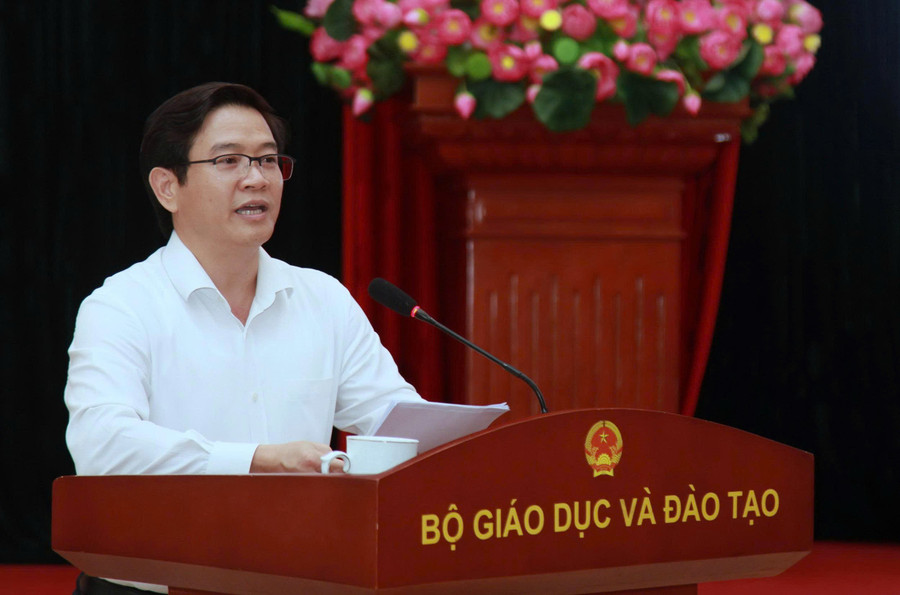
The project sets out eight main tasks and solutions, including: Raising awareness of the whole society about the role of English in education and integration; Building and perfecting institutions and policies to make English the second language in schools;
Develop staff and improve the quality of training and fostering of managers, teachers, lecturers teaching English and teaching in English, ensuring sufficient quantity and consistent quality;
Develop and implement programs and learning materials for teaching English and teaching in English; Innovate teaching methods, testing, assessment methods, and promote the development of an English environment as a second language in schools;
Promote the application of advanced technology and artificial intelligence (AI), improve facilities and equipment to ensure quality for the development of bilingual education activities, English teaching and learning, and teaching in English, with priority given to disadvantaged and particularly disadvantaged areas;
Strengthen international cooperation, promote socialization and public-private partnership in improving the quality of English teaching and learning, teaching in English; Launch emulation movements, practical and effective rewards, as a driving force to promote the implementation of the Project nationwide.
The project is applied in all preschool, general education, university, vocational education and continuing education facilities nationwide. It is estimated that there are about 50,000 educational facilities with nearly 30 million children, pupils and about 1 million administrators and teachers at all levels, fields of study and training sectors affected by this project.




3 contents for comments
At the meeting, Council members focused on giving opinions on three specialized contents of the Project, which are: the roadmap for making English the second language in schools in Vietnam, including three stages (2025-2030, 2030-2040, 2040-2045); the scope of implementation of the Project; solutions to ensure the conditions for implementing the Project, especially building and developing the teaching staff, mobilizing social resources to ensure facilities, and applying new technologies for teaching and learning.
Accordingly, opinions basically agree with the proposed 3-phase roadmap. Phase 1 (2025-2030) - building the foundation and standardization: Ensuring a solid foundation for English to be used regularly and systematically in the educational environment, creating communication needs and habits of using English in schools.
Phase 2 (2030-2040) - expansion and enhancement: Promote the use of English more frequently, expand teaching and educational activities to meet diverse and rich needs in the education system, create a stable and solid environment for the use of English in schools.
Phase 3 (2040-2045) - completion and improvement: English is used naturally, forming an ecosystem of English use in the educational environment, communication and school administration.
The British Council representative affirmed the important role of dividing the stages as above and commented: This method allows us to stop, control, and evaluate the results of each stage; from there, consider the effectiveness, what has been done well and what has not been done well to have solutions ready for the next stage more effectively.
The implementation of English in preschool education facilities to create a premise for early language thinking development and facilitate the successful implementation of the Project for general education is also of interest. Regarding this issue, Mr. Hoang Quoc Tuan - Director of the Department of Education and Training of Lang Son said that the "mandatory" requirement should be considered. Mr. Nguyen Quy Thanh - Principal of the University of Education (Hanoi National University) mentioned the optimal stage for teaching a second language and said that the starting time should be when the mother tongue has been relatively established.
Regarding implementation conditions, the most concerned issues are the teaching staff, facilities and teaching equipment. Ms. Nguyen Kim Dung - Director of Legal Affairs and External Affairs, British University Vietnam proposed to add regulations allowing public educational institutions to recruit foreign teachers; allowing classes to be arranged according to English proficiency; having regulations on socialization and funding of English teaching software for schools; issuing a list of foreign language teaching certificates accepted in Vietnam.
To achieve the Project's objectives, most opinions affirmed the important role of the English-using environment and emphasized the need to first develop an English-using environment in schools.
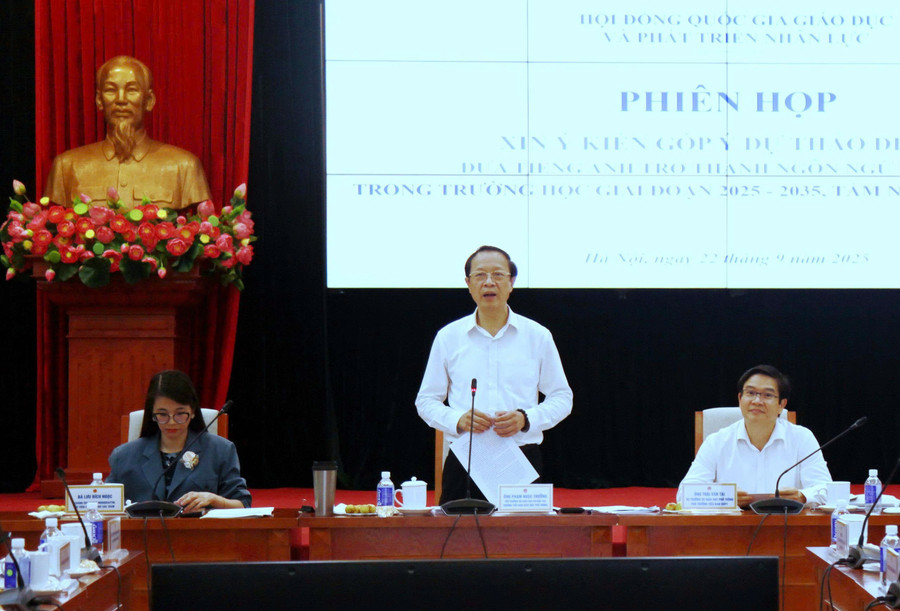
In his concluding remarks, Permanent Deputy Minister Pham Ngoc Thuong said that he would take into account all comments and suggestions. Re-emphasizing some important contents, the Deputy Minister mentioned breakthroughs in awareness, thinking, institutions and resources. Accordingly, in the current context, with the requirement of training global citizens, foreign languages in general, English in particular and digital skills are extremely important tools. Making English a second language cannot be delayed.
Regarding resources, in the spirit of Resolution No. 71-NQ/TW, the State must play a central and leading role; using public investment as a driving force to lead private investment. At the same time, it is necessary to mobilize maximum social resources, but it is necessary to avoid the situation of relying solely on socialization for the entire national project.
The Deputy Minister also said that in the 8 solutions set out in the draft Project, the focus is on the 2 most important factors: institutions and human resources, specifically the teaching staff. Regarding the implementation roadmap, places with favorable conditions can promote earlier implementation and must play a leading and promoting role. Places without conditions must implement according to the roadmap with appropriate progress...
Source: https://giaoducthoidai.vn/gop-y-hoan-thien-de-an-dua-tieng-anh-thanh-ngon-ngu-thu-2-trong-truong-hoc-post749426.html















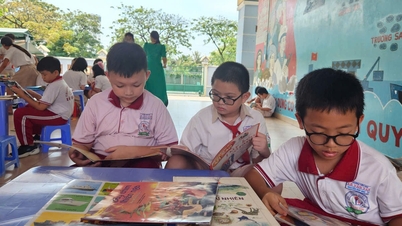




![[Video] Groundbreaking ceremony of inter-level boarding schools in the border areas of Tuyen Quang and Lao Cai](https://vphoto.vietnam.vn/thumb/402x226/vietnam/resource/IMAGE/2025/11/09/1762702287645_lao-cai-ha-giang-6159-jpg.webp)


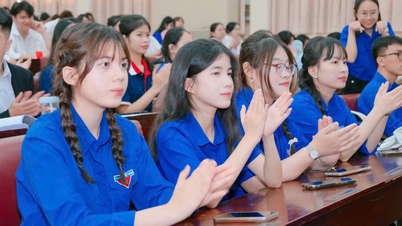








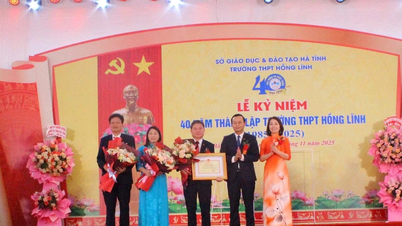
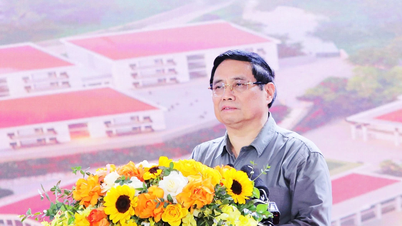
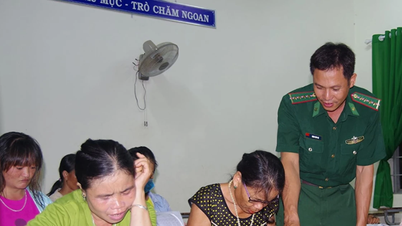
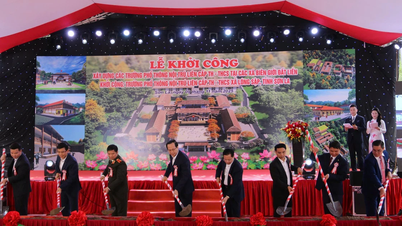






































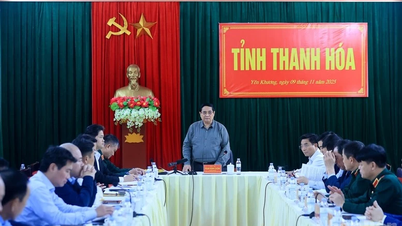




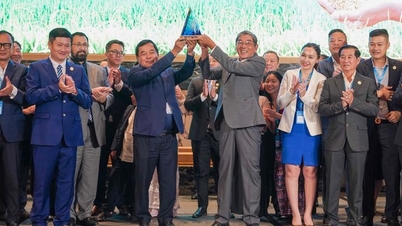



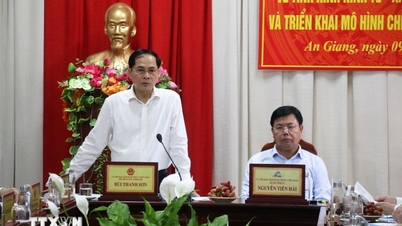



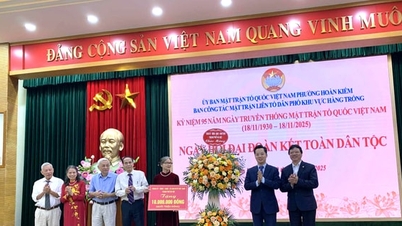



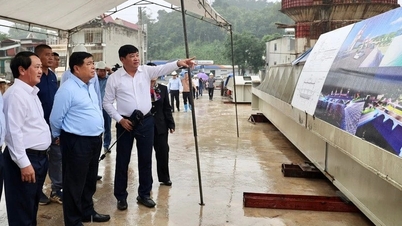


















Comment (0)